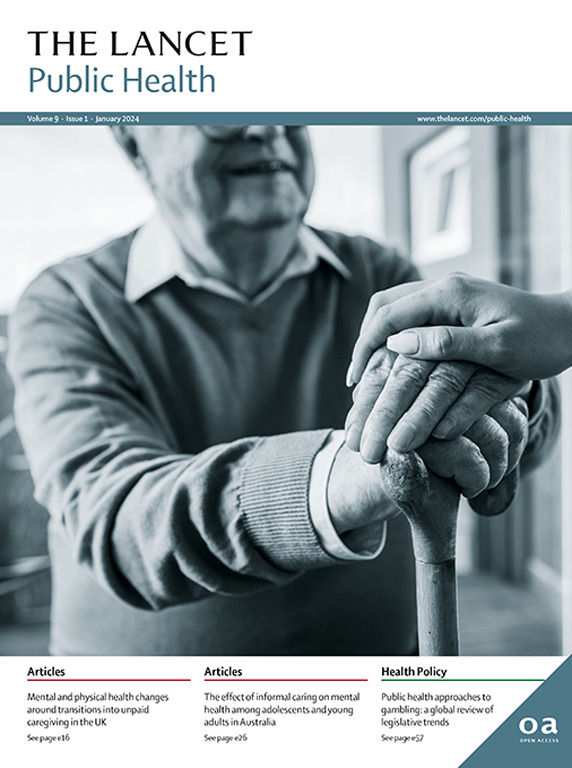更安全的阿片类药物供应和健康结果——作者的答复
IF 25.2
1区 医学
Q1 PUBLIC, ENVIRONMENTAL & OCCUPATIONAL HEALTH
引用次数: 0
摘要
我们感谢Robert Tanguay和Nickie Mathew的评论,并欢迎有机会澄清我们研究的关键方面作者提出了与美沙酮起始接受者相比,更安全的阿片类药物供应(SOS)接受者中更高的阿片类药物毒性率的担忧。我们认为重要的是要强调我们的发现,阿片类药物毒性事件在SOS和美沙酮启动后显着下降SOS接受者的下降幅度较小可能反映了较高的基线风险和在治疗早期更大程度上持续暴露于不受管制的药物供应。重要的是,在整个随访过程中,两组的阿片类药物相关死亡率和全因死亡率都极低,突出了治疗参与的保护作用。作者将我们的研究结果与Hai Nguyen及其同事的研究结果进行了对比,后者评估了政策变化后的人口水平趋势。然而,这些研究没有检查SOS接受者的结果,没有将SOS与美沙酮进行比较,并且由于设计而容易产生生态谬误。因此,这些研究比我们的个体水平匹配队列分析更有可能存在偏差。本文章由计算机程序翻译,如有差异,请以英文原文为准。
Safer opioid supply and health outcomes – Authors' reply
We thank Robert Tanguay and Nickie Mathew for their comments and welcome the opportunity to clarify key aspects of our study.1 The authors raise concerns about higher opioid toxicity rates among safer opioid supply (SOS) recipients compared with those initiating methadone. We believe it is important to emphasise our finding that opioid toxicity events declined markedly following both SOS and methadone initiation.1 The smaller decline among SOS recipients might reflect higher baseline risk and greater ongoing exposure to the unregulated drug supply early in treatment. Importantly, opioid-related and all-cause mortality was exceedingly low in both groups throughout follow-up, highlighting the protective effect of treatment engagement. The authors contrast our findings with those of Hai Nguyen and colleagues, who evaluated population-level trends following policy changes. However, these studies did not examine outcomes among SOS recipients, did not compare SOS with methadone, and were prone to ecological fallacy due to design.2, 3 Thus, these studies are more likely to be biased than our individual-level, matched cohort analysis.
求助全文
通过发布文献求助,成功后即可免费获取论文全文。
去求助
来源期刊

Lancet Public Health
Medicine-Public Health, Environmental and Occupational Health
CiteScore
55.60
自引率
0.80%
发文量
305
审稿时长
8 weeks
期刊介绍:
The Lancet Public Health is committed to tackling the most pressing issues across all aspects of public health. We have a strong commitment to using science to improve health equity and social justice. In line with the values and vision of The Lancet, we take a broad and inclusive approach to public health and are interested in interdisciplinary research.
We publish a range of content types that can advance public health policies and outcomes. These include Articles, Review, Comment, and Correspondence. Learn more about the types of papers we publish.
 求助内容:
求助内容: 应助结果提醒方式:
应助结果提醒方式:


